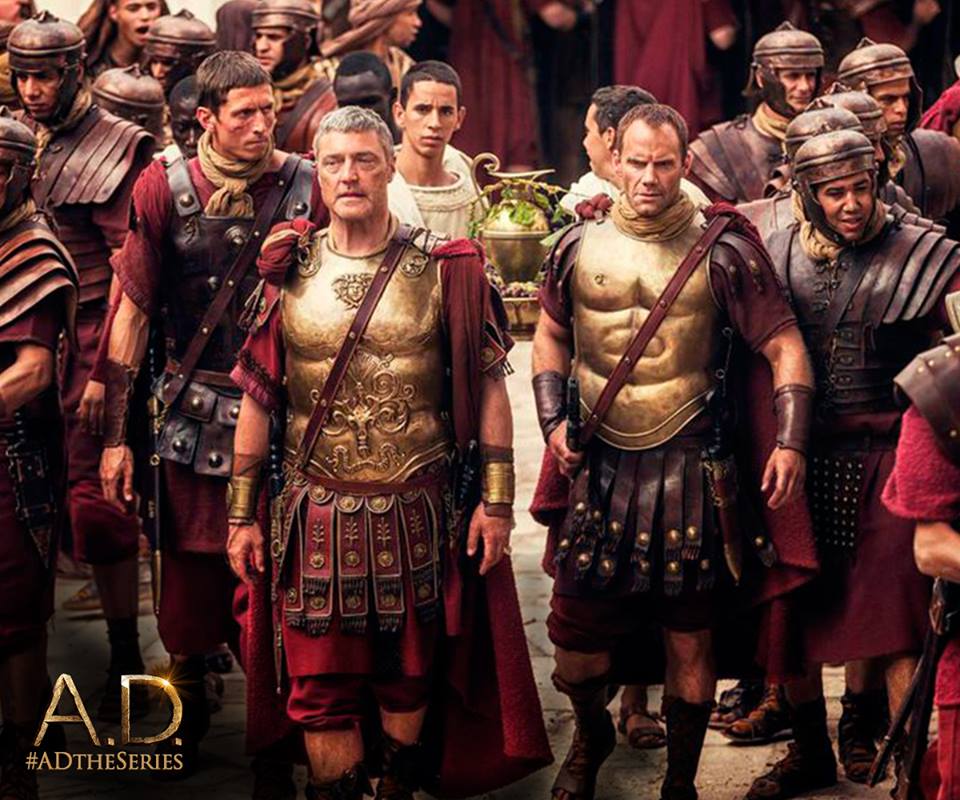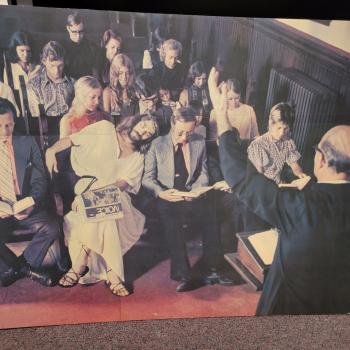It was the best of times, it was the worst of times. It was the best of episodes, it was the worst of episodes. On the down side— we have the Emperor Tiberius and his mad relative Caligula visiting Jerusalem, something that absolutely never ever happened. Tiberius was a recluse, and even when Caligula was later Emperor, the only part of him that got near to Jerusalem but in the end didn’t make it was his statue. But that’s a story for another day. Less problematic are some of the little non-historical fictions, like Saul going to Galilee and visiting with Peter’s daughter.
For the record, Pilate was eventually removed by the Emperor but this did not happen until A.D., 37, which is considerably later in time than this episode. Pilate ruled Judaea for a full decade. Saul was even converted before Pilate was sent packing. According to Acts, Saul was sent by the high priest to Damascus to get hold of Christians, but according to this episode it is a ruse that gets Saul out of Jerusalem, namely the idea that Peter had gone off to Damascus, and Saul went to track him down.
Now for the good news— we are given some good scenes from Acts 8— Philip in Samaria, Philip encountering Simon Magus, Simon Magus being baptized but not receiving Spirit power to heal. It should be noted that Simon was indeed a Samaritan, a sorcerer of sorts, and the Acts account tells us he believed Philip. It does not say he believed in Jesus. Clearly, he is just hungry for magical power, not hungry for Jesus. We’ll see if the next episode gives us the story of Peter and John visiting and checking on the work of Philip.
It is of course entirely possible that Saul did encounter some of the leading Jewish Christians in Jerusalem, and certainly he was involved in their persecution. The actor playing Saul is believable as a zealous persecutor who cares about the Law and the Temple. His presence is menacing and makes plausible the later action of the Jerusalem church to send Saul back to Cilicia because he had created too many enemies in Jerusalem, including in the churches of Judaea.
As for the fictitious scenes between Pilate and Tiberius and Tiberius and Antipas etc. of course they never happened, and even less plausible is the notion that Mary Magdalene infiltrated the governor’s household as a maid to keep tabs on what the powerful were saying and doing about ‘the Nazarenes’!
My basic rule when dealing with historical fiction is, as I have mentioned, it’s fine to creatively fill in the gaps, and develop characters more than they are shown in the Bible or Josephus. What is not fine is to create story lines that contradict the history or the Bible. When history becomes the handmaiden to fictitious drama then the impression is given that one doesn’t care about the truth about that history. That’s not good historical fiction writing. It puts the emphasis on the wrong syllable. We’ll hope for better things in subsequent episodes.
















